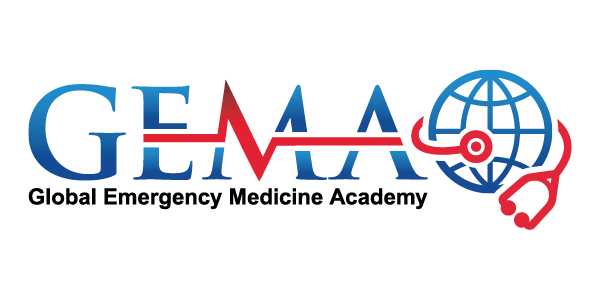Global Emergency Care
Global Emergency Care (GEC) is a 501(c)3 non-profit organization registered in the U.S. and Uganda. GEC works with partner institutions in Uganda to promote EM education and development and facilitates a mid-level provider training program. GEM fellows could work with GEC in areas of curriculum development, research, administration, or field work (as COVID-travel restrictions allow) involving bedside teaching in a clinical environment.
Global Health Training in U.S. Emergency Medicine Residency Programs
Description: Article describing the current state of global health training and short term experiences in global health (STEGH) in U.S. based emergency medicine residency training programs.
Development of a Global Health Milestones Tool for Learners in Emergency Medicine
Description: 2017 Global Health Milestones Tool for Emergency Medicine learners which align with the Consortium of Universities for Global Health (CUGH) Interprofessional Global Health Competencies
Towards Developing a Consensus Assessment Framework for Global Emergency Medicine Fellowships
Description: Recommendations for developing standardized assessments for Global EM fellowships that align with program-defined competencies and goals and objectives of training.
Statement on Responsible Return to Fellowship-related Travel
Description: The Global Emergency Medicine Fellowship Consortium (GEMFC) represents 35 Global Emergency Medicine (GEM) fellowship programs in the United States and Canada. GEM fellowships have a responsibility to their fellows’ educational experience and commitments made to international partners. Generally, GEM fellowship curricula include a significant amount of international travel for both field work and educational experiences The COVID-19 pandemic has created unique challenges for the field of GEM. GEM fellowships, their faculty, and their respective fellows have a responsibility to reduce the risk of spreading COVID-19. This generally involves reducing or restricting travel and transitioning in-person gatherings to virtual formats. GEM fellowships, their faculty, and their fellows continue to have an ongoing responsibility to their domestic and international partners, which may include activities that cannot be moved to remote interaction or delayed indefinitely without significant negative effects, including adverse effects on the healthcare infrastructure at the international partner site. There exists a real risk of infecting others at, or during travel to, international partner sites which could have particularly disastrous effects on healthcare workforce readiness and a resource-constrained healthcare system. The COVID-19 pandemic has reinforced the importance of supporting local capacity development and sustainability as the goal of all global health collaboration and made the work of GEM more important and relevant than ever before.

